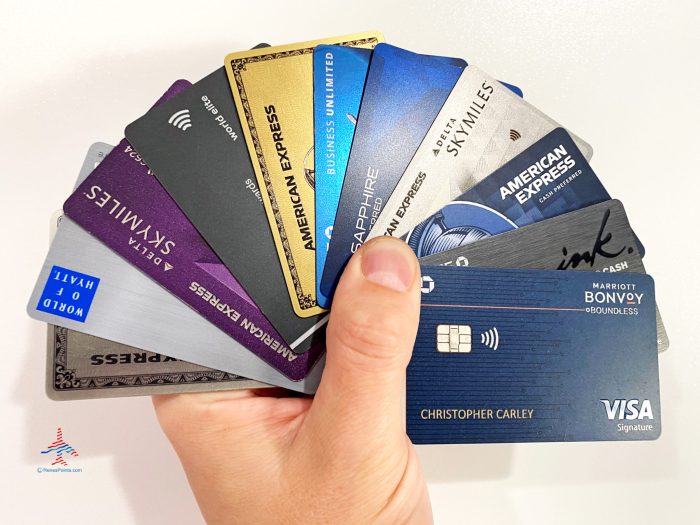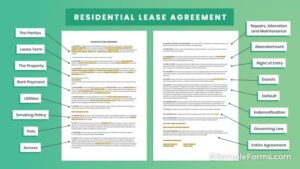
Credit card offers are like candy in a candy store—sweet, enticing, and sometimes just a little bit nutty! From introductory APR rates that can give your wallet a breather to rewards programs that help you earn points faster than a squirrel hoarding nuts for winter, there’s a lot of ground to cover. Buckle up as we explore the colorful world of credit card offers and find out how they can either be your best friend or that one relative who always borrows money and never pays it back.
With various types of offers available, understanding how they work is crucial. Whether you’re looking to pay off debt, earn rewards, or just keep your credit score in tip-top shape, there’s something for everyone. Join us as we unravel the mysteries of credit card offers and equip you with the knowledge to navigate this financial jungle!
Credit Card Offers Overview

Credit cards have become a ubiquitous part of our financial landscape, offering consumers a plethora of options that range from enticing rewards to compelling introductory rates. Whether you’re a frequent flyer, a cashback connoisseur, or just someone who wants to make their purchases a little more flexible, there’s a credit card designed just for you. Let’s take a dive into the world of credit card offers, where you can find the right fit for your wallet!
Types of Credit Card Offers
The variety of credit card offers available can be overwhelming, but understanding the types available is key to making an informed decision. Here are some popular categories:
- Cashback Cards: These cards reward you with a percentage of your spending back in cash. Ideal for everyday purchases, they turn your shopping into savings!
- Travel Rewards Cards: Perfect for jet-setters, these cards offer points for travel-related expenses, which can be redeemed for flights, hotels, and more. It’s like having a personal travel agent in your pocket!
- Balance Transfer Cards: If you’re drowning in high-interest debt, these cards allow you to transfer balances from other cards and enjoy a lower interest rate for a limited time. It’s like a lifeboat in a sea of financial chaos!
- Student Credit Cards: Tailored for those just starting their financial journey, these cards often have lower credit limits and are designed to help build credit responsibly.
Introductory APR Rates
Introductory APR rates can be a game-changer in the world of credit cards. These rates typically start low or even at 0% for a specific period, allowing consumers to save money while they pay off balances or make larger purchases.
“Introductory APR rates can turn your credit card into a financial superhero, saving you from the evil clutches of high-interest debt.”
The impact of these rates is significant. For instance, if you have a balance of $1,000 at a 0% introductory APR for 12 months, you can strategically pay off that balance without accumulating interest. However, be cautious; once the introductory period ends, the APR can spike, catching you off guard if you’re not prepared.
Rewards Programs Benefits and Drawbacks
Rewards programs associated with credit cards can be incredibly enticing, but they come with their own set of pros and cons that every consumer should consider.Consider the following aspects:
- Benefits:
- Earn Points or Cashback: With every purchase, you accumulate rewards that can be redeemed for various perks.
- Sign-Up Bonuses: Many cards offer bonus points if you spend a certain amount in the first few months, which can give your rewards a significant boost.
- Flexible Redemption Options: Rewards can often be redeemed for travel, merchandise, or statement credits, giving you plenty of choices.
- Drawbacks:
- Annual Fees: Some rewards cards come with hefty annual fees that may outweigh the benefits of the rewards.
- High Interest Rates: If the balance isn’t paid off in full, the interest can eat into any rewards earned.
- Complex Reward Structures: Understanding how to maximize rewards can be tricky, and limits may apply on how and when you can redeem them.
Financial Strategies Related to Credit Cards
Managing credit cards can feel like walking a tightrope over a pit of fire-breathing dragons—without the proper strategy, the consequences can be catastrophic. Luckily, with a few effective financial strategies, you can keep your balance and avoid a fiery fall. Let’s dive into the world of credit card management, where we’ll explore tips for tackling debt, the benefits of credit counseling, and the various debt consolidation options you can consider.
Effective Credit Tips for Managing Credit Card Debt
When it comes to managing credit card debt, a proactive approach can save you from sleepless nights and excessive interest payments. Here’s a collection of credit tips that can help you navigate your finances with more finesse than a cat on a hot tin roof:
- Pay More Than the Minimum: Always aim to pay more than the minimum amount due. This reduces your principal faster and cuts down on interest payments. Think of it as feeding your financial pet; the more you feed, the less likely it is to bite back!
- Set Up Automatic Payments: Automating payments can help ensure you never miss a due date. This is like having a personal assistant who doesn’t need coffee breaks!
- Create a Budget: Develop a budget that incorporates your credit card payments. Prioritize your expenses like a game of Tetris—fit them in so you don’t end up with an impossible mess on your hands.
- Keep Credit Utilization Low: Aim to keep your credit utilization ratio below 30%. If you use too much of your available credit, your score takes a hit, akin to trying to run a marathon after eating an entire pizza.
- Consider Balance Transfers: If you have high-interest debt, a balance transfer to a card with a lower rate can be a smart move. Just watch for fees and promotional periods like a hawk eyeing its prey!
Role of Credit Counseling in Improving Credit Scores and Financial Health
Credit counseling can be a game-changer in your financial journey, especially if you’ve found yourself lost in the maze of credit card debt. Professional credit counselors offer personalized advice to help you improve your credit score and overall financial well-being. Here’s how they can assist:
- Tailored Action Plans: Counselors analyze your financial situation and create personalized action plans that are easy to follow—think of them as the GPS for your credit journey.
- Debt Management Plans: They may suggest enrolling in a debt management plan (DMP) which consolidates your payments and may even reduce interest rates. This is like getting a VIP pass to the concert of your financial life!
- Education and Resources: Credit counselors provide valuable educational resources, helping you understand your credit report and how to improve your score, much like teaching you to fish instead of just handing you a fish dinner.
Comparison of Debt Consolidation Options Relevant to Credit Card Debt Management
Debt consolidation can simplify your finances and lower interest payments, but not all options are created equal. Here’s a breakdown of popular debt consolidation methods to consider in your strategy:
| Option | Description | Pros | Cons |
|---|---|---|---|
| Personal Loan | A fixed-rate loan used to pay off credit card debt. | Lower interest rates, fixed payments, improves credit score if paid on time. | Requires good credit, potential fees. |
| Balance Transfer Card | A credit card that allows you to transfer debt with low or no interest for an introductory period. | Low initial interest rate, can save money on interest. | High fees, potential for high interest after promotional period. |
| Home Equity Loan | A loan that uses your home as collateral to consolidate debt. | Lower interest rates, tax-deductible interest. | Risk of foreclosure, requires home equity. |
| Debt Management Plan | A structured repayment plan set up by a credit counseling agency. | Single monthly payment, reduced interest rates. | May affect credit score, requires discipline. |
Related Financial Concepts

When it comes to tackling credit card debt, many people find themselves lost in a labyrinth of options. Fear not! We are about to unveil some financial concepts that can help you navigate these waters like a pro sailor with a map, a compass, and maybe a parrot for company. From home equity loans to estate plan trusts and the mysterious realm of currency trading, let’s dive right in!
Home Equity Loans and Credit Card Debt Relief
Home equity loans have become the superhero of debt relief for many. By leveraging the value of your home, you can secure a loan that often comes with lower interest rates compared to credit cards. This can be a game-changer when your credit card bills start resembling a novel no one wants to read.
“Home equity loans can transform your home into a financial lifeboat, rescuing you from the stormy seas of credit card debt.”
Consider this: if your home is worth $300,000 and you owe $200,000, you might have access to a portion of that equity to consolidate your debt. It’s like finding a hidden treasure chest in your backyard! However, ensure you can manage the payments because failure to pay could have you trading your cozy living room for a much less cozy foreclosure office.
Estate Plan Trusts and Protection Against Credit Card Liabilities
Estate plan trusts are like the secret vaults of your financial world, guarding your assets from pesky creditors. By placing assets into a trust, you can effectively shield them from being seized in the event of unpaid debts, including credit card liabilities.
“An estate plan trust can be the financial bouncer your assets need at the door of credit liabilities.”
Think of a trust as a protective bubble wrap around your valuables. This legal structure can keep your hard-earned assets safe, ensuring your family isn’t burdened by your debts after you’ve moved on to the great credit card in the sky. It’s a savvy move that not only protects your wealth but also provides peace of mind.
Implications of Currency Trading for Individuals with Credit Card Debt
Currency trading, or forex trading, may sound like a surefire way to make a quick fortune, but for those with credit card debt, it’s more like walking a tightrope over a pit of hungry crocodiles. This high-stakes market can either boost your financial situation or plunge you deeper into the financial abyss.
“Currency trading without a solid financial foundation is like trying to juggle chainsaws while riding a unicycle—exciting but risky!”
For example, imagine you’ve got a credit card debt of $10,000 and decide to invest your last savings into currency trading. If you succeed, you might turn your situation around. However, if the market sways against you, you could find yourself with both debt and losses, creating a cocktail of financial chaos. It’s crucial to approach currency trading with caution—maybe even a safety net—instead of hoping for a miracle to solve your credit woes.
Closing Summary
In conclusion, navigating the world of credit card offers can feel like trying to solve a Rubik’s Cube blindfolded. But fear not! With a bit of savvy and a sprinkle of humor, you can find the right card that best suits your financial needs. Just remember to read the fine print, weigh the benefits against the drawbacks, and keep an eye on those sneaky interest rates.
Happy swiping, and may your credit card journey be filled with rewards and zero surprises!
FAQ Corner
What is an introductory APR rate?
An introductory APR rate is a temporary, lower interest rate offered by credit card issuers for a specific period, often aimed at attracting new customers.
How do rewards programs work?
Rewards programs allow you to earn points, cash back, or travel miles on your purchases, which can be redeemed for various rewards.
Can I negotiate a better credit card offer?
Yes, many credit card companies are open to negotiations, especially if you have a good payment history and credit score.
What are the drawbacks of credit card offers?
Some drawbacks include high-interest rates after the introductory period, potential annual fees, and the risk of overspending.
Is it wise to have multiple credit cards?
Having multiple credit cards can be beneficial for rewards and credit utilization, but it’s essential to manage them wisely to avoid debt.





